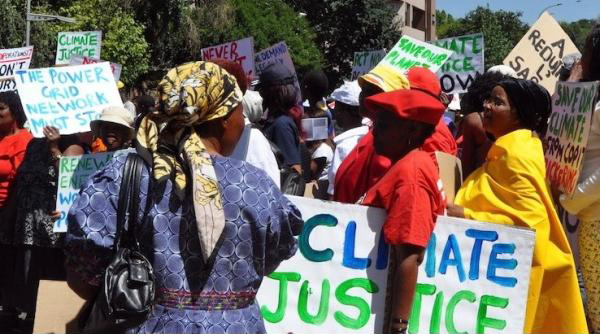The climate emergency disproportionately affects the disempowered and most marginalized across the world – the poor, the old, the very young, and women in particular. Protecting the vulnerable is a matter of justice.
Climate justice is a human-centred approach to responding to the challenges of climate change that embraces human rights, equity, and fairness.
Climate change increases the frequency and intensity of heat waves, droughts, and flooding. Sub-Saharan Africa (SSA) is one of the regions that is most vulnerable and least resilient to climate change’s effects on weather. It is taking a profound toll on the people of sub-Saharan Africa. Highly dependent on rain-fed agriculture, many face severe food insecurity, water insecurity, and increasing poverty. Older women are especially at risk due to the disproportionate impacts related to age, gender, poverty, and the lack of supports in their critical role in caring for children orphaned by HIV/AIDs.
Other impacts of climate change in SSA include:
- Migration, both within the country and across borders;
- Increased prevalence of disease, both infections-related water-borne disease (e.g. cholera) and vector-borne disease (e.g. malaria), as well as chronic disease because of inadequate nutrition;
- Early school departure, especially for girls, childhood marriage, and increased gender-based violence.
In addition, many sub-Saharan countries are at high risk for worsening food insecurity and competition over resources, increasing civil unrest and mass displacement.
Urgent action is needed to build resilience to climate change in SSA in order to achieve the Sustainable Development Goals by 2030. Building resilience requires a multi-pronged and integrated approach that prioritizes gender equity, education, and health.



